Since the beginning of 2022, the market share of WordPress has stopped growing. It even seems to be on a slight downward trend. Indeed, after passing the 43% market share mark in December 2021, WordPress has never exceeded 43.3% (reached…
No, you’re not dreaming. This provocative questioning is very serious.
Isn’t it time to remove the “blog” feature from the WordPress core?
The idea came to me while reading this article by Jack Kitterhing on WordPress user experience.
Let me elaborate and we’ll talk about it in the comments.
WordPress “was” a blogging engine
Blogging has been intimately linked to WordPress since its launch. It was the reason it was created.
Over time, WordPress has gradually evolved into a true CMS (and so much the better!).
Pages, content types, and custom fields now offer a wide range of possibilities.
You can do everything with WordPress. Storefront, ecommerce, blog, portfolio, LMS, forum, and even social network!
However, with each new installation, two default content types are present: Posts and Pages.
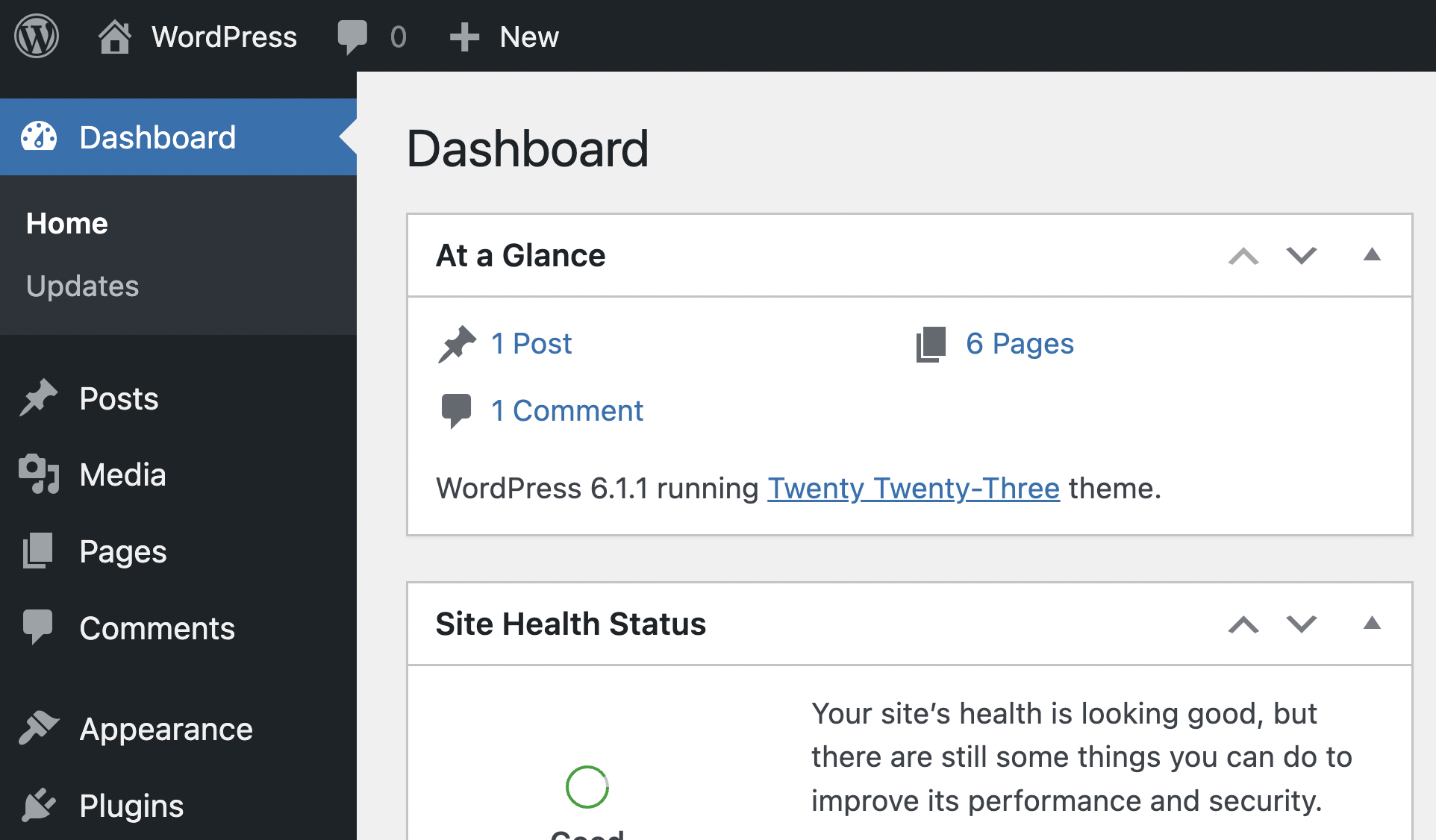
However, not every website has a blog or a news section.
According to these figures, there are 600 million blogs out of the 1.9 billion websites online, which means about 1/3 of websites.
However, a large portion of these blogs are on Tumblr, which would make the proportion much lower. At a guess, it would be more like 4%.
I’d like to find more specific statistics, especially on the percentage of WordPress websites (.org and .com) that have a blog. If you have sources, please share them in comments.
To develop this idea further, I should note that there is a plugin to disable the WordPress blog.
It is called Disable Blog and has 10K+ active installations.
This figure seems to show that such a demand is pretty low. However, I believe that users are not thinking about disabling the blog. They just leave it alone.
If few WordPress users are using the blog-related features, why keep the Post content type in core?
For the Page content type, there’s no question. All websites need it to create their contact page, legal notices, etc.
So I ask the question again.
What if posts, categories, tags, comments, and their associated settings were removed from the WordPress core?
WordPress without a blog: what are the advantages?
This choice is radical but I see several good reasons to implement it:
- Adaption to the majority of projects: not every website needs a blog.
- Simplification of the interface: with fewer elements in the administration, the use would be easier.
- Less confusion: users will no longer get confused about the type of content (e.g. adding a contact form in a post. Yes, it happens).
- Saving time: the default post (“Hello world!”), the “uncategorized” category, and the default comment would no longer be present (so no need to delete them).
- Send a strong signal: many webmasters still think that WordPress is only for blogging.
Here is what an interface without posts could look like:
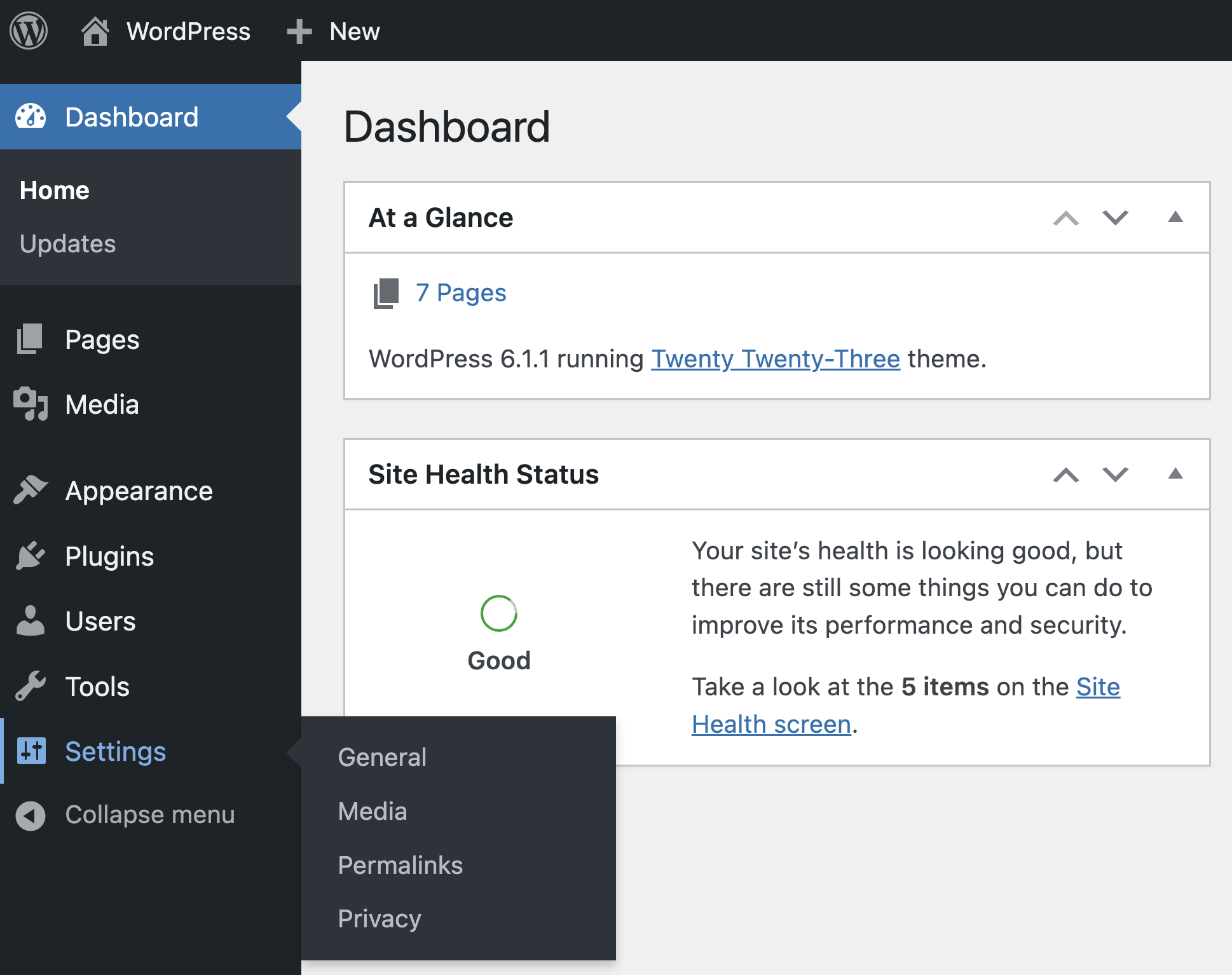
Doesn’t that sound more interesting?
What about users who want to blog?
Of course, the goal is not to pronounce a permanent divorce between WordPress and blogging!
The idea would be to treat the Blog feature exactly like ecommerce, portfolio, or LMS features.
If a user wants to blog, they have to install a dedicated plugin.
Everything related to blogging should be put in a plugin, namely:
- The Post content type
- Category and Tag taxonomies
- Comments
- The associated settings:
- The Writing submenu (with the default category and post format)
- The Reading submenu (with the choice of the post page, the number of items in the archive pages, and the RSS settings)
- The Discussions submenu
- Some permalinks settings (date tags, category prefixes, and tags)
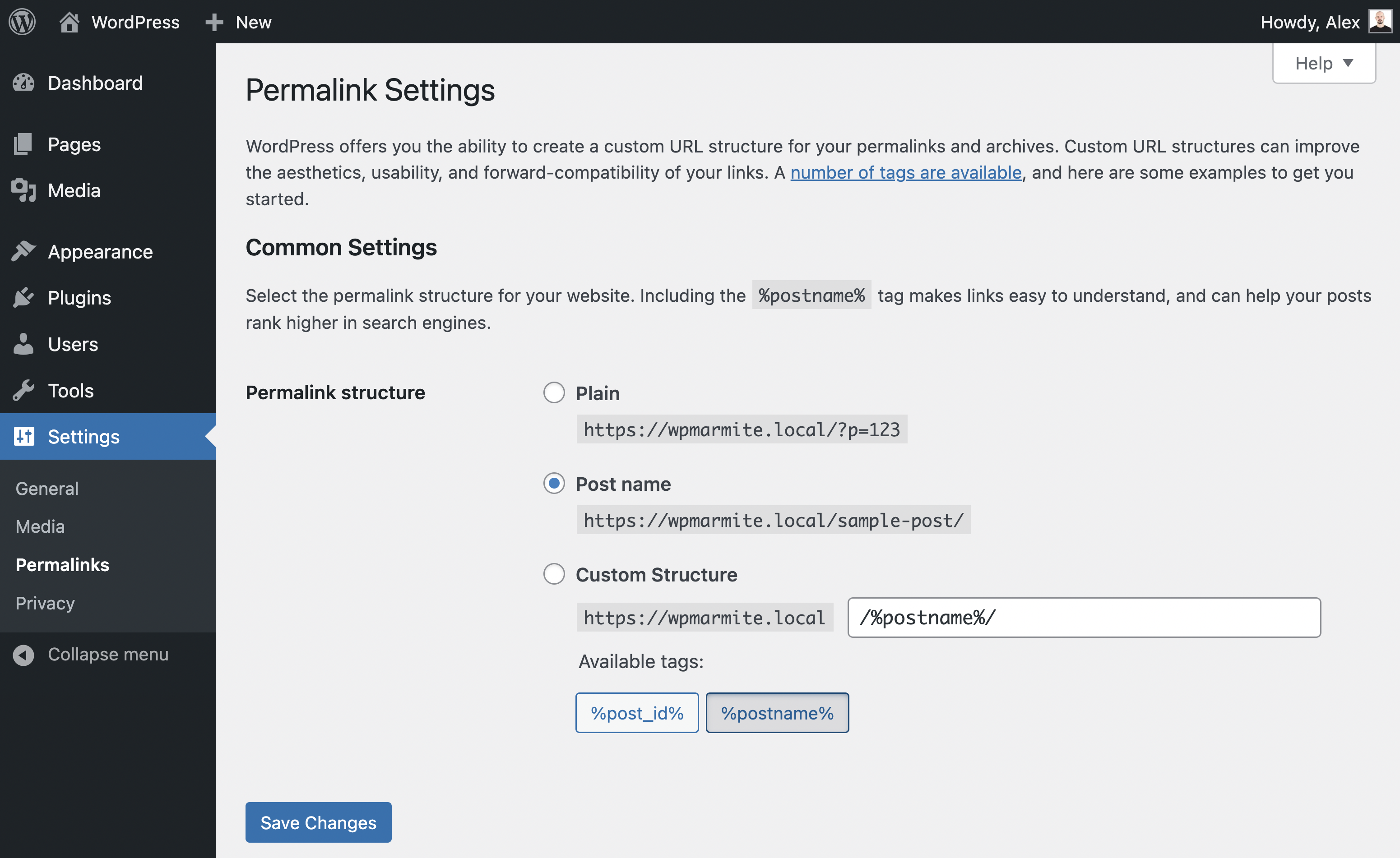
We should just move the checkbox for Search engine visibility in the General settings.
In order not to cut the cord permanently, this plugin (named Blog or Blogging) would be installed and disabled by default on any new website, like Akismet.
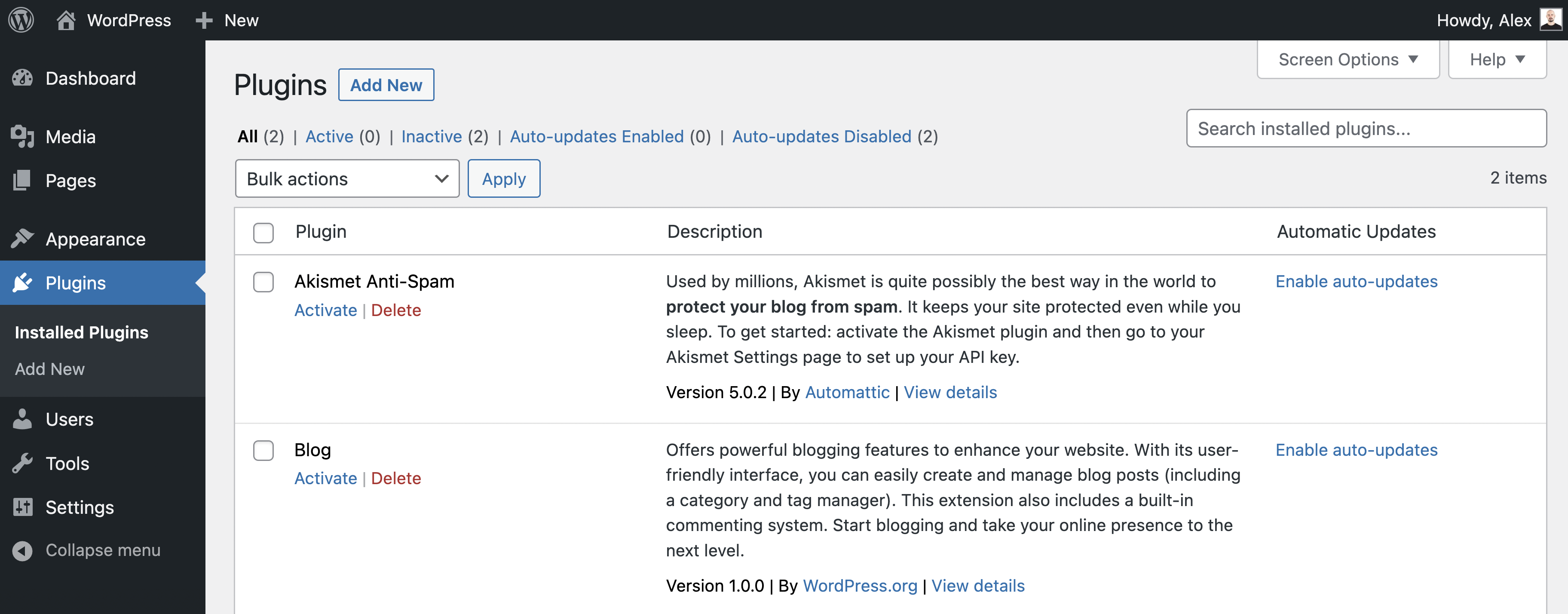
This would allow users who want to have a blog to do so with a few clicks.
In the event that WordPress should take such a turn, this plugin would be enabled by default for all existing websites.
Thus, the transition would be seamless.
Conclusion
Imagining WordPress without blogging is not easy, as this feature is so closely linked to the tool. Nevertheless, it would be a logical evolution.
Such a choice could open the door to:
- Competing blogging plugins. Is that a problem, though? There are more advanced commenting systems.
- Accidental deactivations, which would cause SEO damage. However, the same reasoning can be applied to WooCommerce or a forum plugin.
However, I’m convinced that the benefits would outweigh the risks.
After 20 years associated with blogging, this historical feature would be turned into an optional feature.
Wouldn’t this mark the transition of WordPress into the adult world?
Not that blogging would be a child’s or teenager’s activity, but that from now on, this functionality would no longer be imposed on users.
Do you think WordPress is ready for this? Do you use the blog feature on all website that you create? Share your thoughts in the comments.

Receive the next posts for free and access exclusive resources. More than 20,000 people have done it, why not you?




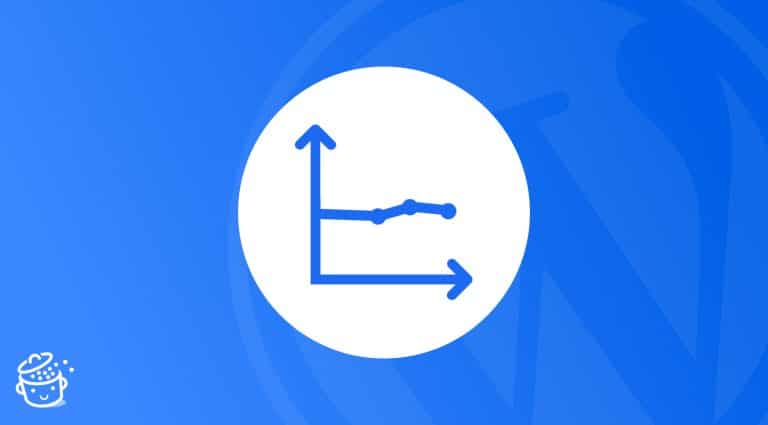

I ve been using Wp since 1.27 or somthing, so i ve a looooong use case – I think WordPress has not been a “blog-only” platform for years now… if you want just blog Ghost is much better.
it’s also true that 90% of websites that monetize need a blog section.
If we move away from blogging then wp become a second rate clone of WIX (gutemberg is years behind being truly useful) and it will lose all the people who use to monetize the website, which probably are the same people who buy plugins and support the ecosystem.
It s much better to stop a moment and think about the FSE fiasco. Wp is not something i ll bet my money on at the moment.
I think it’s a gret idea and would love to see it happen!